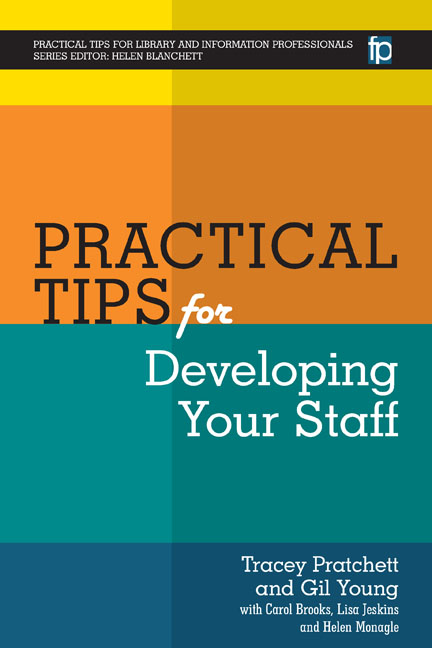Book contents
- Frontmatter
- Contents
- List of figures and tables
- Acknowledgements
- The authors
- List of abbreviations
- Series Editor's introduction
- Introduction
- Section 1 Theories
- Section 2 Infrastructure
- 11 Why develop staff?
- 12 Workforce planning
- 13 Job descriptions
- 14 Person specifications
- 15 Advertisements
- 16 Shortlisting
- 17 Interviews
- 18 Interviews – presentations and tests
- 19 Interviews – feedback
- 20 Inductions
- 21 Managing performance
- 22 Team development plans
- 23 Appraisals – preparing
- 24 Appraisals – conducting
- 25 Setting objectives
- 26 One-to-ones
- 27 Feedback – general
- 28 Team building
- 29 Team meetings
- 30 Sharing learning with the team
- 31 Writing references
- 32 Exit interviews
- 33 Effective handover
- Section 3 Activities and tools
- Index
21 - Managing performance
from Section 2 - Infrastructure
Published online by Cambridge University Press: 09 June 2018
- Frontmatter
- Contents
- List of figures and tables
- Acknowledgements
- The authors
- List of abbreviations
- Series Editor's introduction
- Introduction
- Section 1 Theories
- Section 2 Infrastructure
- 11 Why develop staff?
- 12 Workforce planning
- 13 Job descriptions
- 14 Person specifications
- 15 Advertisements
- 16 Shortlisting
- 17 Interviews
- 18 Interviews – presentations and tests
- 19 Interviews – feedback
- 20 Inductions
- 21 Managing performance
- 22 Team development plans
- 23 Appraisals – preparing
- 24 Appraisals – conducting
- 25 Setting objectives
- 26 One-to-ones
- 27 Feedback – general
- 28 Team building
- 29 Team meetings
- 30 Sharing learning with the team
- 31 Writing references
- 32 Exit interviews
- 33 Effective handover
- Section 3 Activities and tools
- Index
Summary
AT ITS MOST basic level the purpose of management is to ensure that the work gets done. To achieve this aim managers need to create an environment in which staff can perform their roles to the agreed standard. In turn staff members need to develop the skills, knowledge, experience and behaviours to enable them to do this. Managing staff performance, in a positive and pro-active way, is the key to achieving this purpose.
In some organizations there will be a clear performance management framework which managers will be expected to adhere to. In others there may be arrangements for some aspects of performance management, such as recruitment and appraisals, whilst in others there may be nothing formal. In all of these instances managers will be able to introduce some performance management activities. Where there is a formal system it is best to work within it, as otherwise you are making work for yourself. It is recommended that whatever the structure of your organization you discuss any concerns you have about setting up a performance management framework with your HR department, if you have one, or with other managers.
Performance management begins before an individual has started with an organization. The steps described prior to this Tip are instrumental in starting to build the relationship between the individual and their manager, team and organization. The job description and the person specification are the basic framework documents which outline what is expected of the individual in their role. The individual's experience of the selection process and their induction will have started to build their impressions of the organization, which will form part of their emotional or psychological contract.
Communication is the key to creating a culture which enables good performance. Day-to-day performance management is made up of a number of activities which are covered in the Tips following this one, which include appraisals (p. 54 and p. 56), one-to-ones (p. 61) and team meetings (p. 68).
Individuals need to understand what their manager means by good performance. They need to be clear about what is deemed an acceptable level of performance and how the work that they do contributes to the work of the team and the overall success of their organization.
- Type
- Chapter
- Information
- Practical Tips for Developing Your Staff , pp. 50 - 52Publisher: FacetPrint publication year: 2016



